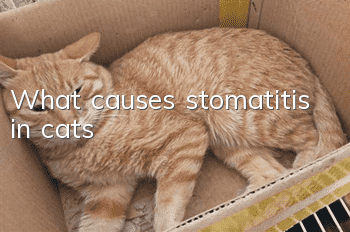cat stress response symptoms

The main symptoms of cat stress reaction are: depression, loss of appetite, loss of appetite, rapid breathing, rapid heartbeat, stiff and trembling limbs, vomiting, diarrhea, abnormal excitement or high tension, convulsions, and a tendency to hide in the dark. come out. Since a cat’s stress response is too strong, it may cause diseases. Common diseases include feline infectious peritonitis, constipation, anuria, etc. Therefore, it is recommended not to take cats to strange places, and at the same time, it is necessary to reduce the chance of strangers approaching the cat.
Cat stress reaction symptoms will vary depending on the period. Common cat stress reaction periods are divided into alert period, resistance period, and exhaustion period.
1. Alert period
Through a series of neurophysiological changes, the body's resources are urgently mobilized and the body is in a state of combat readiness. This period can be further divided into a shock period and an anti-shock period. During the shock period, shock symptoms such as a drop in blood pressure, an increase in vascular permeability, a decrease in blood concentration, and a drop in body temperature will appear. The anti-shock period is opposite to the shock period.
2. Resistance period
During the resistance period, some neurophysiological changes will occur, making full use of the body's resources to deal with various emergencies, and it will also cause the cat to have some lower urinary symptoms. Tract problems, especially lower urinary tract problems in male cats, may cause them to have urethral obstruction and inability to urinate. This situation requires attention. It is best to take the cat to the pet hospital for examination and treatment as soon as possible.
3. Depletion period
The hormones and important trace elements in the body are depleted, some cells and tissues are destroyed, and post-traumatic stress disorder occurs. This stage occurs when the stress factor is severe or the stress persists, and defense means no longer work. If it continues to progress, the cat will die.
Note: No matter what, when a cat has a stress reaction, the owner needs to comfort the cat more to help the cat relieve it. If it is more serious, you must take the cat to the hospital for medical treatment in time.
- How long will a cat stay in an abandoned place?
- How to prevent cats from scratching and biting? Tips to correct cats from scratching and biting!
- Why does the mother cat change places with her kittens in her mouth?
- Cat’s eyes can’t be opened and white film appears
- What should I do if my cat’s ears are losing hair in large areas?
- What is the personality of a Maine Coon cat?
- What are the early signs of cat plague?
- What are the basic cat trainings? Effective cat training!
- What will happen if the cat is not neutered?
- Can a two-year-old cat still be trained? Cat skill training!



